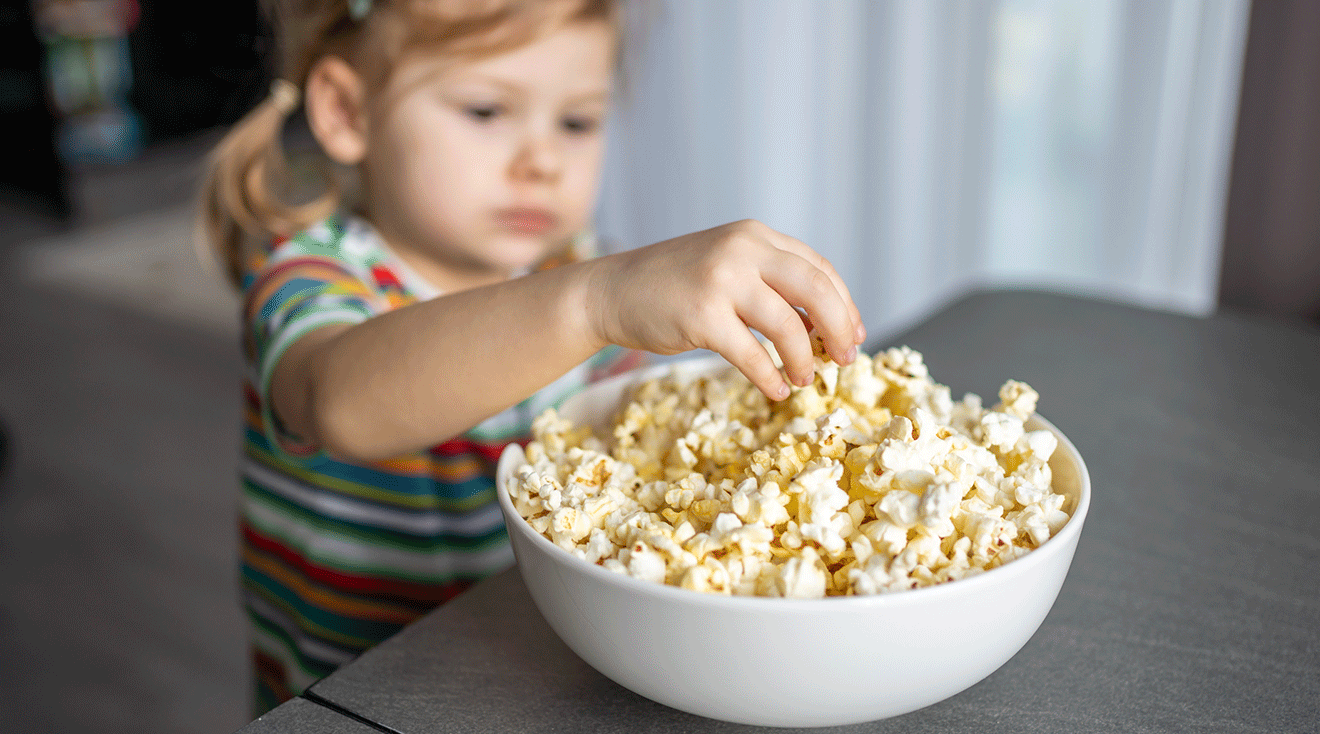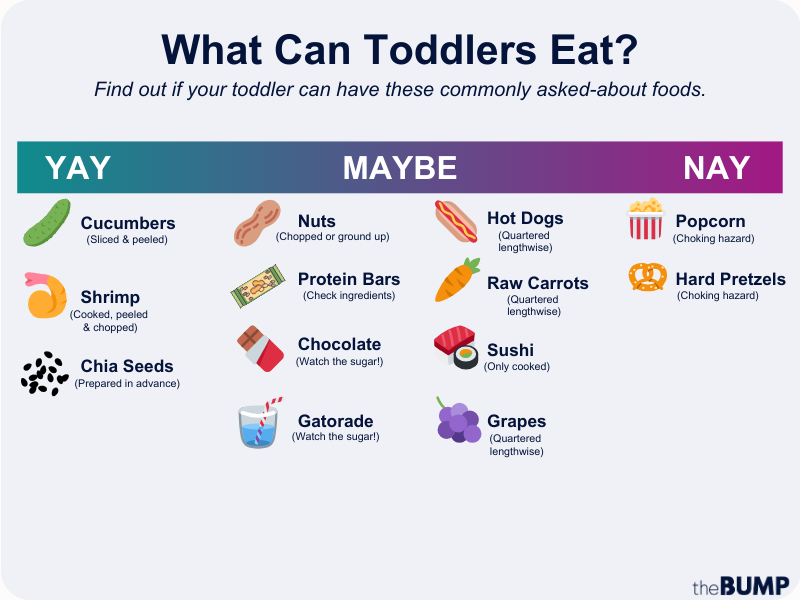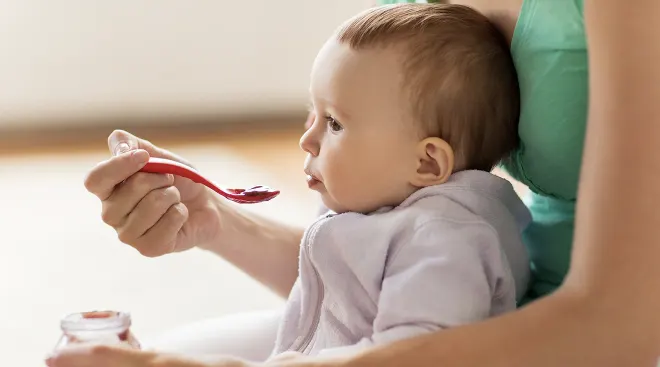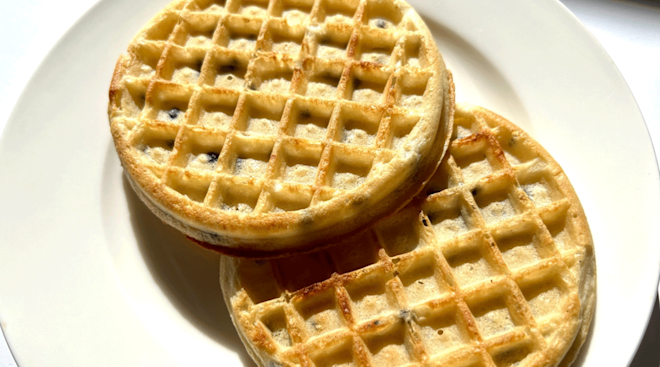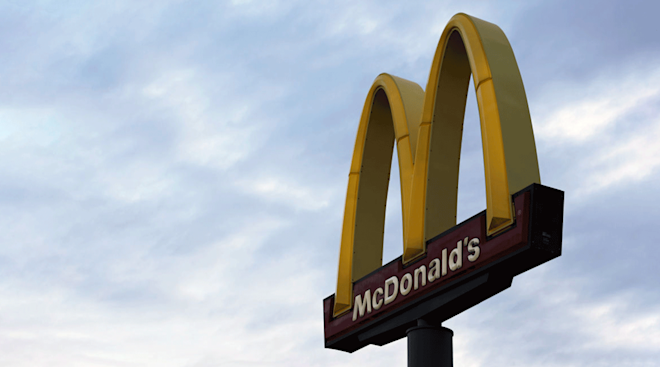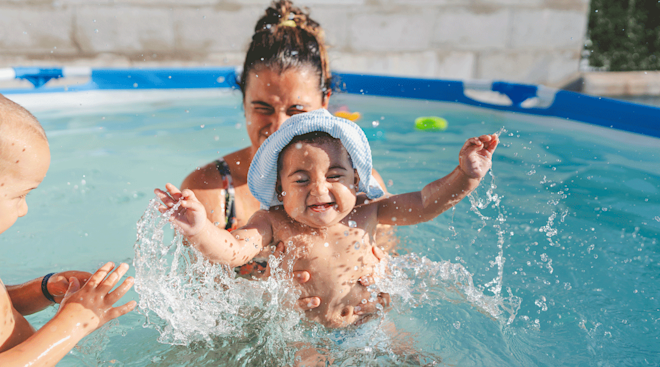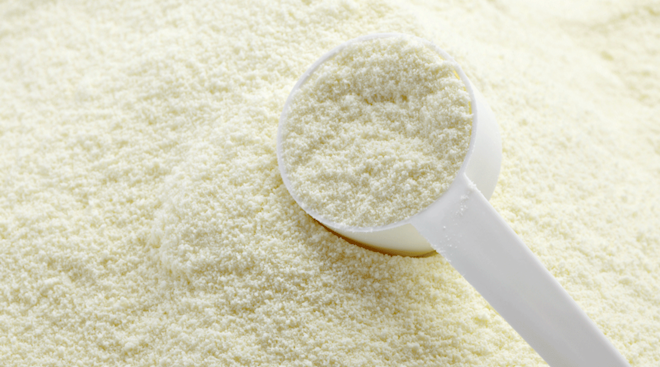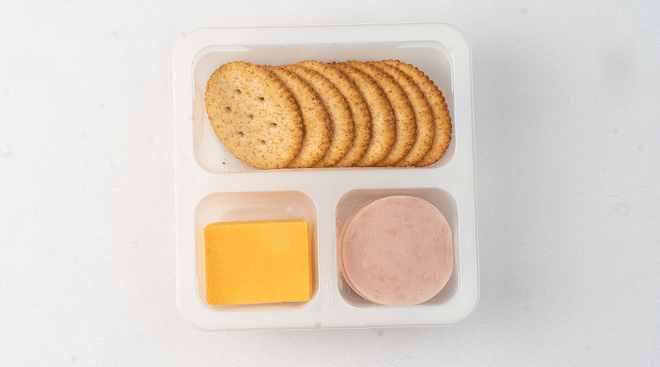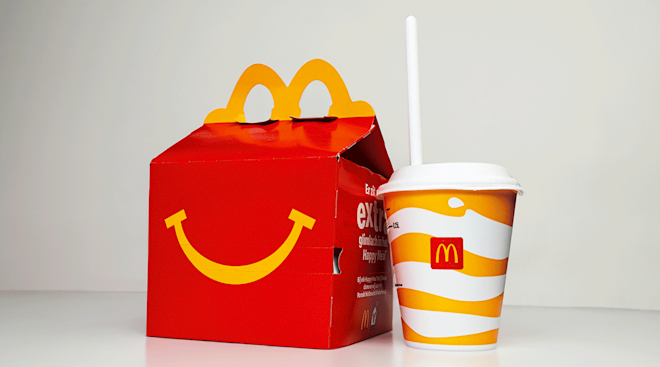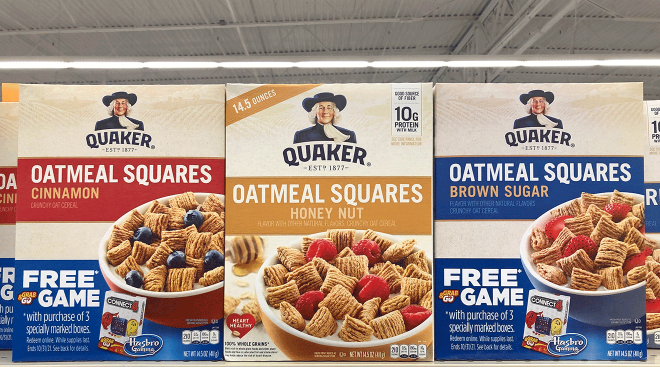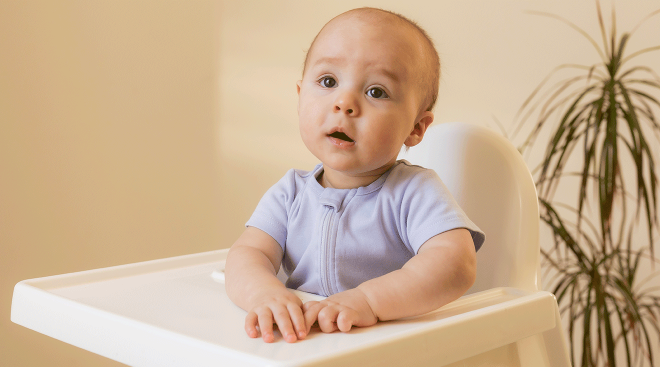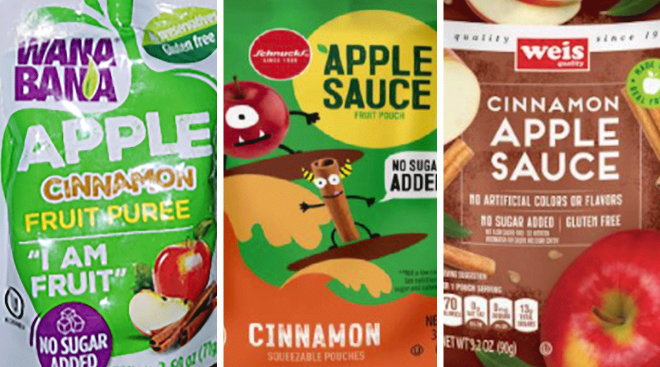Can Toddlers Eat Popcorn? (and Other Common Food Questions)
During the toddler stage, it’s common to navigate picky eating—but you’re definitely past the point of teaching your little one to eat solids. In fact, your toddler might be quite a pro at polishing off chicken nuggets and other toddler-friendly meals at the family dinner table. But does that mean your toddler can eat everything you eat? Not so fast. If you’re wondering, “Can toddlers eat popcorn?” “Can toddlers eat sushi?” “Can toddlers eat protein bars?” and more, read on for expert answers.
You can’t blame a toddler for wanting to eat popcorn—especially when butter is involved. However, our experts agree unanimously with the American Academy of Pediatrics (AAP) that popcorn belongs on the do-not-eat list for toddlers without exception. That’s because it can lead to choking, a leading cause of death and injury among children especially when they’re 3 years old or younger, according to the AAP.
The shape, size and consistency of foods we eat all figure into the potential for choking—and it doesn’t help that toddlers can sometimes swallow without fully chewing their food. Along with things like raw carrots, whole grapes, hard candies, marshmallows and globs of nut butter, popcorn “share[s] the same high-risk physical characteristics that create effective plugs for the pediatric airway,” AAP warns.
What’s more, because popcorn is light, a toddler could actually inhale it into their airway. Due to its sharp edges, it can become lodged and lead to choking, explains Marina Salama, MD, a pediatrician at Calabasas Pediatrics in Calabasas, California.
Tanya Altmann, MD, pediatrician and founder of Calabasas Pediatrics, adds: “I’ve seen a young child get surprised and inhale a piece of popcorn into their lungs, which then needed to be surgically removed for safety.” It’s best to avoid the risk—whether you’re at home or in a movie theater.
Given the potential for choking, experts agree it’s best to hold off on serving popcorn to your child until they’re at least 4 years old. By this point, they’ve typically developed the chewing skills to mash up and safely swallow popcorn kernels.
When guiding toddler parents toward safe foods, Megan McNamee, MPH, RDN, registered dietitian and co-founder of Feeding Littles, recommends steering clear of anything very hard (like raw carrots), perfectly round and slippery (hot dogs and grapes), or very sticky (taffy and globs of nut butter). Any food with these qualities “should be modified or avoided until age 4,” she says.
While putting safety first might be a little more work, Altmann, a mom of three, knows the alternative is much worse. “I was that crazy pediatrician mom who went around at birthday parties slicing hot dogs and cutting grapes not just for my kids, but any kids,” she says.
Frequently Asked Questions
Can toddlers eat sushi?
While neither of my kiddos is particularly interested in sushi, the hazard here involves food safety in addition to choking: Raw-fish sushi can cause food poisoning, specifically in children under 5 with still-developing immune systems that limit their ability to fight germs and bounce back from diarrhea and dehydration, according to the Centers for Disease Control and Prevention (CDC).
To sidestep foodborne illness when it comes to sushi, “I tell parents to start with vegetarian options,” Salama says—even though many toddlers across the globe enjoy raw fish much earlier than they typically do in the US, McNamee points out.
If you share sushi with your little one, you can also opt for rolls prepared with cooked seafood such as shrimp, crab or eel (and limit swordfish, bluefin and bigeye tuna when eating fish in any form to minimize excessive mercury exposure).
As for choking risk, “because sushi is usually soft, most toddlers can eat it safely,” McNamee says, although they might struggle with chewy seaweed used to wrap sushi rolls, or large pieces of fish or vegetables. Her advice: “Watch your toddler closely as they eat sushi, make sure they're not stuffing the entire piece into their mouth and remind them to chew and take small bites.”
Can toddlers have Gatorade?
Neither of my kids are pro athletes—yet!—but neither am I, and I would still consider grabbing a Gatorade to rehydrate if we were to get a stomach bug. So I had to ask the panel: Is it okay for little kids to sip some too?
McNamee doesn’t recommend it—but it has nothing to do with potential for choking, toxins or even allergies. (Phew!) “It’s not unsafe for them,” she confirms. “But if they need an electrolyte-replacement drink for diarrhea or vomiting, Pedialyte, Kinderlyte or Liquid IV Kids contain a better ratio of electrolytes.”
Salama agrees: “Toddlers really only need milk or water,” she says. “Gatorade contains lots of sugar, and that’s not anything a toddler needs more of.” Water, she explains, is the best source to rehydrate, anyhow. For sick kids who need something extra special, water infused with lemon or berries can do the trick.
Can toddlers eat cucumbers?
Before you file cucumbers under “round, slippery and dangerous,” grab a knife: All of the experts we spoke to say cucumbers are perfectly fine for toddlers when sliced into large, thin rounds—all the better if you also peel them to reduce tough skin. Dicing gives you one more option; McNamee says either shape is ideal for babies too. “Avoid preparing them in long sticks that could cause a child to choke,” adds Salama.
Can toddlers eat chia seeds?
Chia seeds, I recently learned, help fortify the immune system. With my 4-year-old in preschool during flu season, I have no further questions—besides the obvious one: Can my 2-year-old eat chia seeds too?
The answer, McNamee tells me, is yes: She recommends mixing them into foods like yogurt, oatmeal, smoothies or baked goods for a dose of omega-3 fatty acids, protein and fiber.
The other experts agree, but Salama adds: “Because they expand when they come in contact with liquid and form large clumps, which increases the risk of choking, I always recommend preparing chia seeds several hours in advance.”
When can toddlers eat nuts?
The last time I hit the grocery store to replenish my slivered almond supply and came up with only whole almonds, I briefly faltered. The potential for an allergic reaction, it turns out, is a great concern among the experts I polled: Research suggests that early, frequent exposure to the top nine allergenic foods—that is, peanuts, tree nuts, finned fish, shellfish, soy, dairy, eggs, wheat and sesame—can lower a child's individual risk of an allergy, McNamee tells me.
“Allergies can be very scary, but we increase our child's risk of an allergic reaction by delaying allergenic foods,” she says, suggesting you talk to your pediatrician about your child’s family history and risk factors and derive a plan for gradual exposure. “It's best to offer nuts as soon as your baby starts eating solid foods and continue to offer them regularly if possible, as long as they can tolerate them.”
Signs of a food allergy in a child include hives, rash, vomiting, wheezing and facial swelling, Altmann notes, so you should call your pediatrician or visit an emergency room if any of these symptoms crop up.
In the absence of nut allergies, you should still avoid serving whole nuts to your toddler until age 4 to prevent choking: A bit of nut butter spread thinly on fruit or toast or stirred into oatmeal or yogurt is the safest way to serve it, according to McNamee. You can also chop or grind them up.
Can toddlers eat shrimp?
Yes—and it’s a great source of protein. Assuming your child’s not allergic—remember: shellfish is a common allergy—Salama recommends dicing or chopping fully cooked, peeled and deveined shrimp for toddler consumption. Just make sure it’s soft, says McNamee, who likes to steam shrimp in a covered pan with olive oil, garlic, lemon juice and low-sodium broth.
Can toddlers eat protein bars?
If protein bars present a convenient way to satisfy an adult-sized appetite on the go, reason follows that the same snack could stop a hangry toddler’s tantrum in its tracks. “Technically, toddlers can have protein bars,” McNamee says. “But they're not necessary for toddlers to get enough protein unless directed by their doctor for a specific medical or nutritional issue.” She notes that toddlers only need about 16 to 18 grams of protein per day, and most get enough through dairy foods, meat, poultry, beans, eggs, peanut butter and grains.
While bars made from fruits and nuts can help with constipation, Salama isn’t a fan since many are highly processed and contain both excess sugar and artificial ingredients. “They’re also often very dense and sticky, which makes it difficult for toddlers to chew and digest,” she adds.
Altmann backs her up: “I always prefer when toddlers and kids eat real food, compared to processed and packaged,” she says. The exception is bars made with few ingredients and/or that are specifically for children, which can make a great emergency snack on the go.
Can toddlers eat grapes?
My 2-year-old daughter has a tendency to request foods in their whole form: “Whole thing!” she pleads with me, whether she’s asking for an apple to desert after one bite or—eek—a bunch of grapes. McNamee says toddlers can safely eat grapes that are quartered lengthwise. However, whole grapes—and even halved ones—can spell danger for the youngest eaters.
If a visual helps you hold your own when reasoning with a whiny toddler: “The size of a toddler’s trachea”—that is, their windpipe or breathing tube—“is the same as the diameter of a drinking straw,” Salama explains. “If a grape gets stuck there, it occludes the entire airway, causing a medical emergency.”
Can toddlers eat raw vegetables?
Raw vegetables are typically considered a choking hazard for toddlers. To minimize choking risk, make sure to cook your veggies and cut them into age-appropriate pieces. But are there veggies toddlers can eat raw? According to Solid Starts, you can offer grated carrots (and other veggies) starting at 9 months old. If you feel comfortable with your toddler’s eating skills closer to age 2, you can offer items like raw carrot that’s been cut into sticks by quartering raw carrots lengthwise.
Can toddlers eat chocolate-covered pretzels?
Hard pretzels are considered a choking hazard for toddlers, so you should avoid giving them to your little one until at least age 4. And the chocolate, more likely than not, contains added sugar—which is advised against for toddlers.
Can toddlers eat chocolate?
The AAP recommends avoiding food and drinks with added sugar for children under 2 years of age, and aiming for less than 25 grams (or about 6 teaspoons) a day for those 2 years and older. That said, we know that life (ahem, birthday parties) happen. So when it comes to chocolate and all sugar, use your best judgment and be sparing—but don’t beat yourself up if you’re not perfect.
Just because there are foods you should be cautious about when feeding your toddler doesn’t mean you need to resort to toast and applesauce. Toddlers can eat a variety of nutritious foods with the proper preparation. So leave your fears behind when you enter the kitchen—and know you have a lot to look forward to when hazards fade out around age 4.
Please note: The Bump and the materials and information it contains are not intended to, and do not constitute, medical or other health advice or diagnosis and should not be used as such. You should always consult with a qualified physician or health professional about your specific circumstances.
Plus, more from The Bump:
Tanya Altmann, MD, is a pediatrician and the founder of Calabasas Pediatrics in Calabasas, California. She’s the editor-in-chief of the American Academy of Pediatrics’ Caring for Your Baby and Young Child: Birth to Age 5. She earned her medical degree from the Sackler School of Medicine and completed her pediatric residency at the University of California, Los Angeles.
Megan McNamee, MPH, RDN, is a registered dietitian, certified intuitive eating counselor and the co-founder of Feeding Littles, one of Instagram’s most popular parenting accounts.
Marina Salama, MD, is a pediatrician at Calabasas Pediatrics in Calabasas, California. She’s a mother of three and a fellow of the American Academy of Pediatrics. She earned her medical degree from The George Washington University and completed her pediatric residency at the University of California, Los Angeles.
AAP News (American Academy of Pediatrics), Added Sugar in Kids’ Diets: How Much Is Too Much?, March 2010
American Academy of Pediatrics, Prevention of Choking Among Children, March 2010
Centers for Disease Control and Prevention, Safer Food Choices for Children Under 5 Years Old, May 2024
Centers for Disease Control and Prevention, ToxFAQs for Mercury, November 2024
Food Science & Nutrition, Chia Seeds (Salvia Hispanica L.): A Therapeutic Weapon in Metabolic Disorders, December 2022
Nemours KidsHealth, Snacks for Toddlers, January 2021
Solid Starts, Carrot
Learn how we ensure the accuracy of our content through our editorial and medical review process.
Navigate forward to interact with the calendar and select a date. Press the question mark key to get the keyboard shortcuts for changing dates.

































